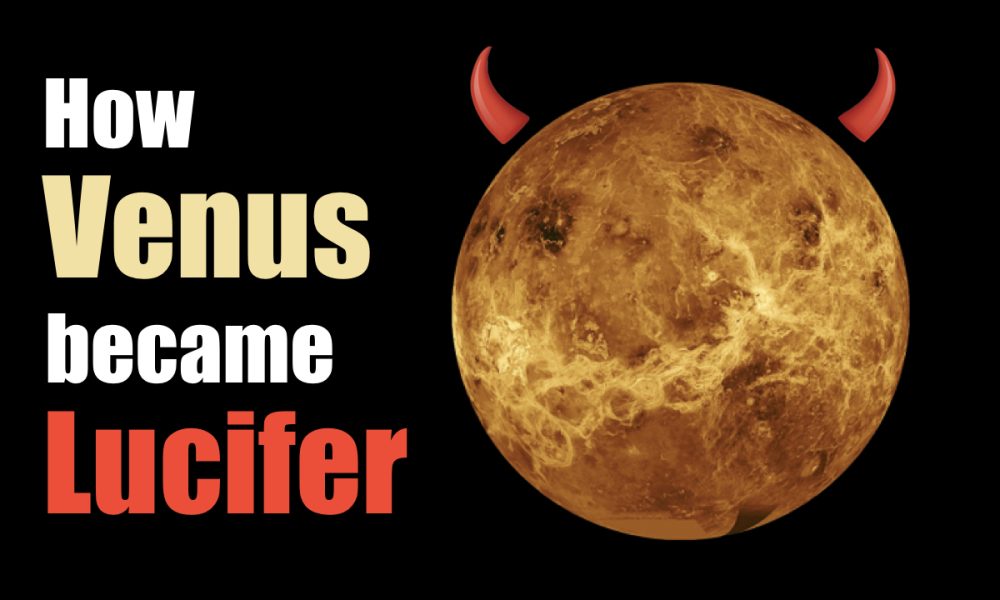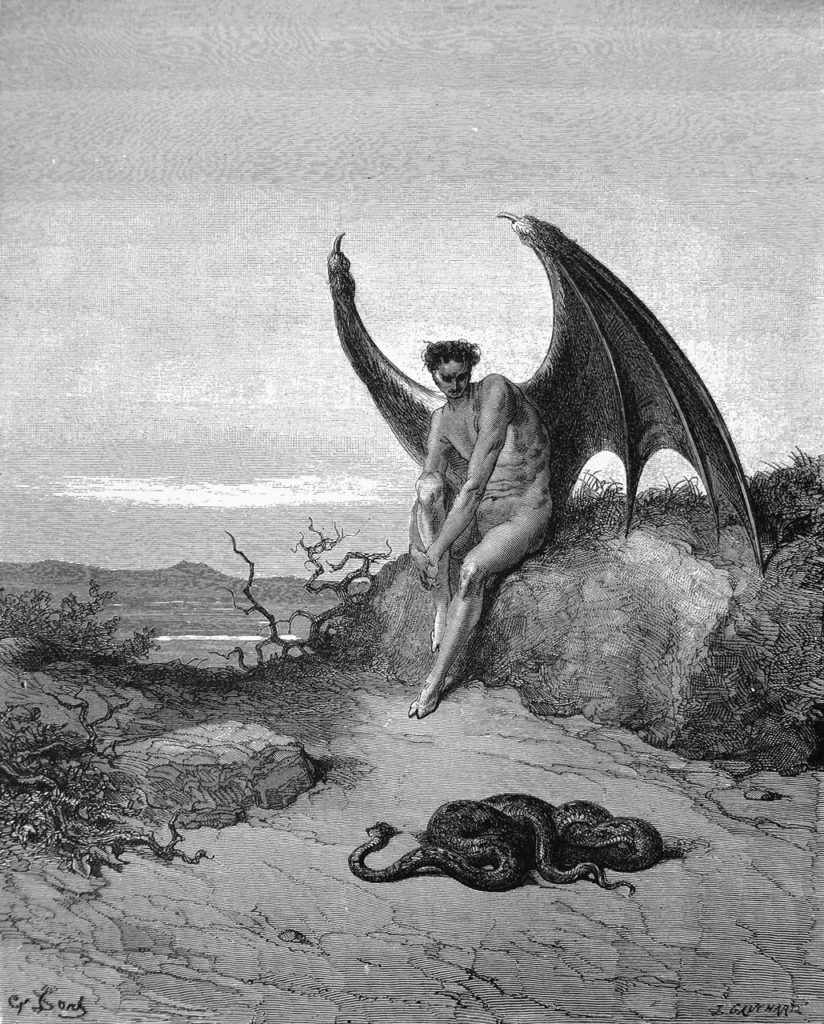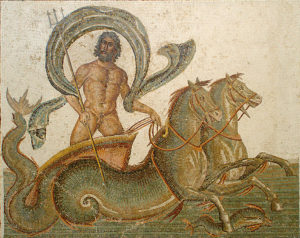So it all started when I was writing the Ancient Greek genealogy on the board
Yup, just a usual day…
“Nike, daughter of Styx and Pallas, Rhea bore 6 children, Esphorous, in bracket Lucifer, son of Eos and — wait what? Lucifer !?! Lucifer, just another God in Greek Mythology ?”
Ok let’s talk a bit about Lucifer here; the Lucifer that I know, the one that most people know.
We know Lucifer as being the devil or Satan, the one who rules over hell. He’s also known as Beelzebub or Prince of Darkness. Lucifer is well known in popular culture, but he comes from Jewish and Christian traditions.
The story of Lucifer
The story of Lucifer is that he was once a bright and beautiful archangel, one of God’s most divine creations, but when God created Adam, the first man on earth, Lucifer refused to honour him and because of this pride, God cast him out of heaven and into hell, and he became the Lucifer who rules over hell, as we know today.
Islamic traditions also share this story, only Lucifer is called Iblis or Shaytan. Another version says that Lucifer was cast out of heaven because he dared compete with God in Glory.
And here I see Lucifer in the ancient Greek god genealogy? This moment is calling for some clarification!
The etymology of ‘Lucifer’
See, Lucifer is a Latin word (two words actually) which means “light-bringer”.
lucefer from words ‘lucem ferre’, derived from roots LUX (light) and FERRE (to carry)
The Greek translation is Phosphorous (light-bearer), alternatively Heosphoros (dawn-bringer). Both Latin and Greek words were translated from the original Hebrew writing “HELEL” הֵילֵל which means “the shining one” or “the bright one”, from this verse right here
Isaiah 14:12
“How you are fallen from heaven,
O Lucifer, son of the morning!
How you are cut down to the ground,
You who weakened the nations!
Quick review
The bible was originally a Hebrew bible, which got translated to Greek, later to Latin, and then to other languages, such as English. The most popular English translation is the King James Version, which is the one I’m holding right here. In it, the word Lucifer remains.
Lucifer is Planet Venus
“Helel”, “Phosphorous” and “Lucifer” all refer to the Morning Star – to the planet Venus.
Since the earliest times, constellations were very important to ancient religions. Planets and stars were personified as deities.
This 2nd planet from the sun, what we know today as Venus, is one of the brightest objects in the sky next to the sun and moon, and just like them, it could be seen with the naked eye.
(Moon and planet Venus at sunrise)
The ancient Sumerians called it Goddess Innana. The Acadians called it Ishtar. In Hindu astronomy, it’s Saint-Shukra. This bright planet does have a peculiarity; it’s generally seen only twice; once at sunrise and once at sunset, basically when the sun is on the horizon.
And because ancient cultures didn’t understand modern astronomy, they saw the appearance of Venus in the morning and at night as two different objects.
Then Ancient Egyptian knew the morning star as Tioumoutiri and the evening star as Ouiaiti. For the Greeks; the morning star was Phosphoros or Heosphoros, and the evening one was Hesperus.
Although the Roman era recognized those stars to be one single planet, they continued to use two names, Lucifer for the morning star, and they kept Hesperus for the evening star.
How Lucifer turned Evil
But why do we know Lucifer as the devil when it’s planet Venus at dawn?
Well, like many many other things in our world, it all has to do with misinterpretation.
First, we need to know that the word Lucifer only appears ONCE in the bible. In Isaiah 14:12
Isaiah 14:12
How art thou fallen from heaven,
O Lucifer son of the morning!
How art thou cast down to the ground,
Which thou who didst weaken the nations!
This means that the Hebrew word HELEL was also found only once in the original Hebrew text. The “Helel Ben-Shachar” (הילל בן־שׁחר ) part, which means “morning star, son of dawn” is the honorific title given to the King of Babylon.
At the time, kings were powerful people who had the same ranks as the stars, and this passage was a prophecy against the king of Babylon, who was said to be a tyrannous oppressor of Israel.
Remember, the old testament of the bible, where this passage belongs, was originally written by Jewish authors for the Jewish people, around 600 BCE.
In a nutshell, this passage in “Isaiah” is about the arrogance and fall of the King of Babylon at the time.
Some believe that it alludes to a contemporary myth, the ancient myth that tells how Helel, the morning star, or Venus, tried to climb the walls of the northern city of the gods to make himself King of Heaven, only to be driven from the sky by the rising sun. In the Isiah verse, this myth is applied to the event. The Prophets who wrote the book of Isaiah are saying that the King is acting like Helel, but instead of the rising Sun, it is God who would throw him down.
So, Lucifer was never an evil being as we were made to imagine. Lucifer is a noun which means morning star in reference to the planet Venus, and in this very case, the morning star is a metaphor for a Babylonian king.
It’s not for sure exactly when, but by 300 AD, the original significance of Lucifer had changed. For some reason, Christian writers Origen, Tertullian and Augustine of Hippo interpreted the word Lucifer as Satan or the devil. Eventually, the word “Lucifer” was treated as a proper name. Lucifer is Satan and resides in hell.
Some believe that this association could be because the King of Babylon was seen as evil and was therefore identified with Satan and later, books such as Dante Alighieri’s Inferno and John Milton’s Paradise Lost reinforced our collective imagination on the character of Lucifer.
(Drawing of Lucifer depicted by John Milton’s Paradise Lost)
Just like the biblical story of a beautiful angel who turned into a devil, a word to describe a celestial body turned into one that describes Satan.
There’s always a reason behind stories, and oftentimes, the reason is not as we would expect, or as glamorous as we would like it to be. With time, a lot can shift around; translation after translation, interpretation after misinterpretation, nothing remains the same forever.
















